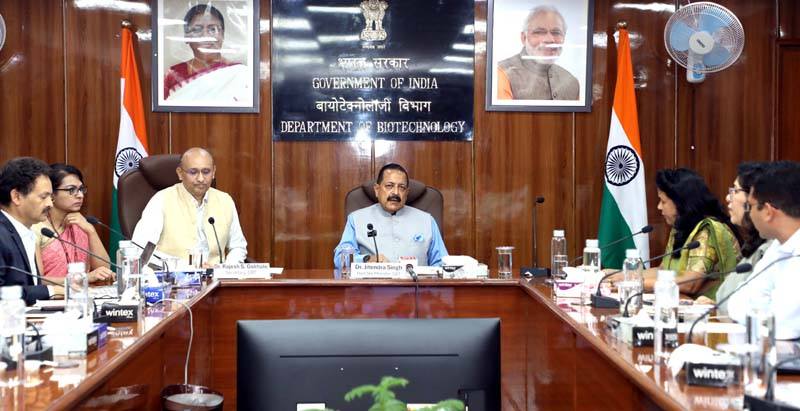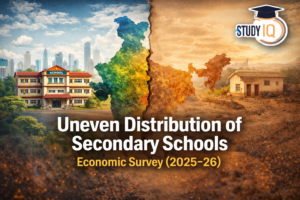Table of Contents
World Bioproduct Day is observed annually on 7th July to raise global awareness about bioproducts — renewable biological products that are transforming industries and helping build a sustainable future. The day highlights the importance of the bioeconomy in environmental conservation, climate action, and economic development.
Since its inception in 2021 by the World Bioeconomy Forum, World Bioproduct Day has gained momentum worldwide, including in India, where the government actively promotes bio-based innovations under ambitious initiatives.
What is World Bioproduct Day?
World Bioproduct Day was launched by the World Bioeconomy Forum in 2021 to recognize the crucial role of bioproducts in daily life and their potential to replace fossil-based materials with renewable, eco-friendly alternatives. It emphasizes:
-
The benefits of bioproducts in reducing carbon footprint
-
Advancing a circular economy
-
Driving innovation in biotechnology and sustainable industries
The day encourages collaboration between academia, industry, and policymakers to accelerate the global bioeconomy transition.
Theme of World Bioproduct Day 2025: “The BioE3 Way”
For 2025, the theme is “World Bioproduct Day – The BioE3 Way”, highlighting India’s new BioE3 Policy launched by the Ministry of Science and Technology. BioE3 focuses on three pillars:
-
Economy: Building a $300 billion bioeconomy by 2030
-
Environment: Promoting environmentally sustainable bioproducts
-
Employment: Generating new jobs through biotechnology innovation
This theme reflects India’s commitment to leveraging biotechnology to foster economic growth while protecting the environment.
Importance of Bioproducts
Bioproducts are materials, chemicals, and energy derived from renewable biological resources such as plants, algae, and microorganisms. They serve as sustainable alternatives to fossil-fuel-based products, reducing greenhouse gas emissions and pollution.
Bioproducts are broadly classified as:
-
Conventional bioproducts: Wood, paper, pulp, and natural fibers
-
Emerging bioproducts: Biofuels, bioplastics, bioenergy, biochemicals, enzymes, and more
These bioproducts play a vital role in industries like agriculture, pharmaceuticals, textiles, and manufacturing.
What is Bioeconomy?
Bioeconomy is the economic activity that uses renewable biological resources to produce food, energy, and industrial goods. It integrates biotechnology innovations for sustainable development.
The bioeconomy aims to reduce dependence on fossil fuels, lower environmental impact, and create jobs in bio-based industries.
Role of Biotechnology
Biotechnology is a multidisciplinary science that uses living organisms or biological systems to develop products and processes for agriculture, medicine, industry, and environment.
Recent advancements include:
-
Genetically modified crops for improved yield and resistance
-
Development of biofuels and biodegradable plastics
-
Medical biotechnology innovations such as new vaccines and therapies
-
Industrial biotechnology for cleaner production methods
Biotechnology is a cornerstone of the modern bioeconomy.
India’s Bioeconomy Innovation Drive 2025
On World Bioproduct Day 2025, India’s Department of Science and Technology (DST), together with BIRAC and iBRIC+, organized an innovative nationwide event called “Voices Across the Cities: A Synchronised National Hourly Dialogue Series”.
This eight-hour hybrid event connected eight cities and institutions to discuss topics such as:
-
Coastal biomass and marine bioproducts
-
Industry-academia partnerships
-
Conversion of agricultural residues into bioproducts
-
Role of enzymes as key enablers
-
Ethnobotany and forest-based bioproducts
This dialogue series aimed to engage the public and experts to accelerate India’s goal of building a $300 billion bioeconomy by 2030.
Conclusion
World Bioproduct Day 2025 marks an important milestone in global efforts to promote sustainable bioproducts and bioeconomy. With growing awareness and innovative policies like India’s BioE3, the future of a cleaner, greener, and economically vibrant world powered by biotechnology looks promising.


 PISA-like Class 10 Assessment Proposed
PISA-like Class 10 Assessment Proposed
 Re-examination of RTI Act: Economic Surv...
Re-examination of RTI Act: Economic Surv...
 Uneven distribution of secondary schools...
Uneven distribution of secondary schools...

























